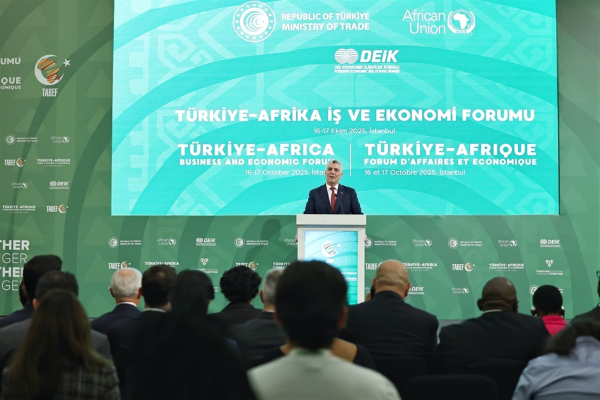Turkey and the Republic of South Africa have taken a significant step to deepen bilateral economic cooperation through the signing of a Joint Economic and Trade Commission (JETCO) Declaration and a memorandum of understanding on cooperation in free zones. The agreement aims to accelerate trade and investment between the two nations and strengthen their long-standing partnership within the broader Turkey-Africa cooperation framework.
According to Turkish trade minister Ömer Bolat, trade between the two nations has already exceeded $2 billion, and the new declaration is expected to further boost commercial activity across multiple sectors.

JETCO to drive investment and cooperation
Speaking at the Turkey-Africa Business and Economic Forum (TABEF) in Istanbul, hosted by the Ministry of Trade in cooperation with the Foreign Economic Relations Board (DEİK) and the African Union, Bolat announced that the first JETCO meeting will take place in South Africa in early 2026.
The meeting will be accompanied by a large Turkish business delegation representing investors, contractors, and exporters seeking new partnerships across Africa’s industrial and infrastructure sectors.
Bolat emphasized that Turkey is viewed as a reliable and stable partner for Africa and highlighted that relations with South Africa are being advanced across political, economic, commercial, industrial, energy, and transport within Turkey’s Africa Strategy launched in 2003.
Trade overview and key sectors
Minister Bolat noted that Turkey’s overall trade volume with Africa is expected to surpass $40 billion in 2025, while Turkish investments on the continent have reached $15 billion, supporting employment for hundreds of thousands of Africans.
Promising sectors for cooperation include:
- Agricultural machinery and electrical equipment
- Defense industry products and automotive components
- Iron, mining, and coal
- Energy, port operations, and logistics
Expanding business presence across both countries
There are currently about 80 South African firms operating in Turkey and 75 Turkish companies in South Africa. Turkish firms are active in home appliances, plastics, electronics, machinery manufacturing, and trade, while South African companies maintain a footprint in investment and logistics.
Bolat underlined that both sides will increase official visits, trade missions, and sector-focused delegations to explore new opportunities in energy, infrastructure, agriculture, and technology.